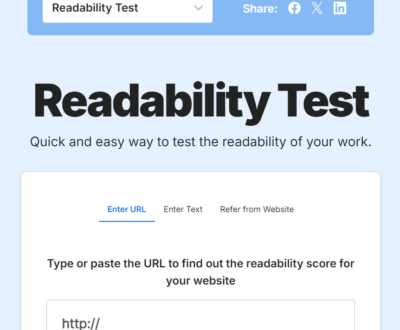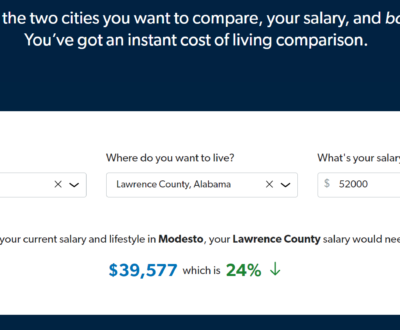Public Relations vs. Marketing: What’s the Difference?
- October 22, 2024
- Blog
It’s a common misconception that public relations (PR) and marketing are the same.
While PR and marketing often overlap, they have distinct purposes and goals for engaging potential customers. It’s important to look at public relations vs. marketing and understand how they differ from each other.
Keep reading to discover what each one is and five ways PR and marketing are different!
What is public relations?
Public relations is mainly concerned with the image or reputation of a company. PR strives for a business’s long-term goals, such as maintaining positive relationships with the surrounding community, investors, employees, media, and more.
Public relations uses social media, websites, email, and other forms of communication to keep customers informed and engaged. They also keeps up with the company’s goals and provides content that matches company values.
Essentially, PR works to keep a company in a positive light, no matter what.
What is marketing?
Marketing focuses on promoting a company and it’s offerings to a selected audience with the goal of boosting revenue. A company’s marketing department looks at potential and existing customers to identify their needs and sell products or services based on those needs.
Marketing uses strategies like search engine optimization, pay-per-click (PPC) advertising, and others to promote the products or services their company offers.
5 significant differences between PR and marketing
So, when looking at marketing vs. PR, you may wonder, “What’s the difference?” Here are 5 significant differences between PR and marketing:
1. Target audience
The target audience for marketing and PR looks a little different
Marketers are mainly interested in prospects that they can turn into customers or clients. While they do focus a little bit on people who convert and become customers (building customer loyalty, for example), they’re mostly focused on obtaining new prospects.
Public relations, on the other hand, focus on a lot of different audiences, from customers to media to influencers to investors. They’re working to maintain a positive reputation, so they’re concerned mainly with people who already know their business and use their products or services.
A PR agency often tends to multiple audiences at once for different reasons, like crafting a press release for one project while managing meetings with investors from another.
2. Day-to-day tasks
PR and marketing have different areas of focus and goals. These differences play in their respective daily responsibilities.
Everything PR does is for the overall image of the brand. On a typical day, they might schedule public speaking opportunities, pitch company announcements to the media, build relationships with influencers in the industry, boost the company’s brand, and more.
Marketers keep equally busy in another part of the office. In marketing, people focus on creating and managing campaigns, securing advertisements, drafting newsletters, creating supporting materials, and performing research to better understand their target audience.
3. Focus
When looking at marketing vs. PR, you’ll notice the focus for each department is different.
Marketers are focused on continually driving new traffic, leads, and conversions for their business. They focus on spreading brand awareness to new prospects and convincing them to learn more about the company’s product or service.
PR, on the other hand, focuses on maintaining reputation. They concern themselves with ensuring that the perspective of a company is positive amongst customers and investors alike.
4. Goals
When you compare public relations vs. marketing, you’ll notice that their goals aren’t the same.
The marketing department is focused on selling a product, brand, or service to their audience. They have goals like increasing leads, conversions, and sales. They deliver marketing materials that help them achieve those goals.
For PR, the goals look different. They focus more on building brand equity and maintaining a positive reputation through the general public and stakeholders.
5. Measures of impact
Since PR and marketing are distinct departments, they also measure success differently.
Marketers determine their impact through a campaign based on the questions like:
- Did the product or service being marketed meet or exceed the sales goals?
- How was the return on investment (ROI)? Did the campaign make a profit?
- Did our key performance indicators (KPIs) hit our projected amounts?
- How many leads were generated from these campaigns?
PR campaigns measure their effectiveness by asking questions like:
- Was positive press generated online?
- Were any awards won at nominated events?
- How many influencers, bloggers, and general public members discuss the brand?
- How much positive feedback was received?
How does PR fit with marketing?
For a successful campaign, both PR and marketing must work together. Each influences the other — one gets brand name awareness out there and maintains reputation, while leverages that reputation to help sell products or services.
Think about it from the customer’s point of view — if your products are excellent, they’ll hold your brand name in higher esteem. However, if customers find faults with your services, your brand may not look so favorable. It all comes down to the audience you’re tending and whether your brand can successfully fulfill their needs.
Need help with marketing?
Marketing is just one piece of the puzzle, but it’s a piece with a big impact. If you need help managing your marketing, WebFX can lend a hand!
We’re a full-service marketing agency that offers digital marketing services to help you grow your business. Already have a marketing plan in place? We also offer marketing consulting services to help set you on the right track.
Contact us online or call us today at 888-601-5359 to speak with a strategist today!
About us and this blog
We are a digital marketing company with a focus on helping our customers achieve great results across several key areas.
Request a free quote
We offer professional SEO services that help websites increase their organic search score drastically in order to compete for the highest rankings even when it comes to highly competitive keywords.








